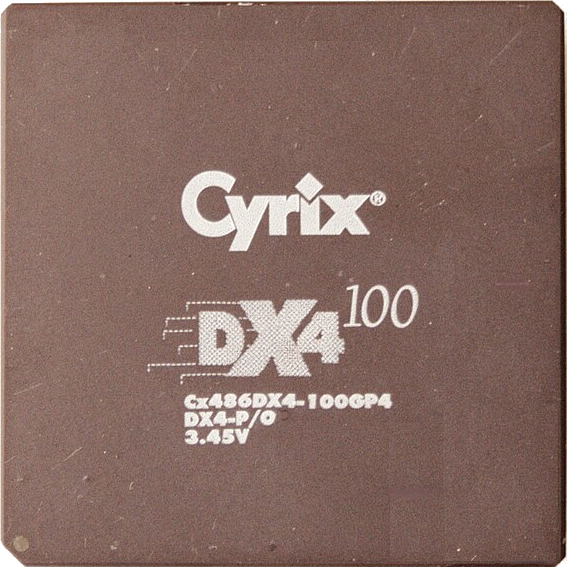

Syncthing is neat, but you shouldn’t consider it to be a backup solution. If you accidentally delete or modify a file on one machine, it’ll happily propagate that change to all other machines.


Syncthing is neat, but you shouldn’t consider it to be a backup solution. If you accidentally delete or modify a file on one machine, it’ll happily propagate that change to all other machines.
or DNS over TCP.
musl does support DNS over TCP since version 1.2.4.
Debian is superior for server tasks. musl is designed to optimize for smaller binaries on disk. Memory is a secondary goal, and cpu time is a non-goal. musl isn’t meant to be fast, it’s meant to be small and easily embedded.
I’ve used Alpine on servers a lot and didn’t notice any performance difference when compared to glibc in the vast majority of cases. This performance comparison even suggests that musl is quite a bit faster in some cases and in most instances it is at least as fast as glibc, which matches my experience.
Okay, thanks for the explanation!
I’m not entirely sure how “… don’t need anything near as memory efficient as Alpine” became “Debian is obviously superior to Alpine”.
This was what made me assume this:
I only ever consider dropping Debian and/or Systemd when going below 512MB RAM.
You make it sound like Debian is obviously superior to Alpine. Alpine Linux is just fine for server tasks. It is nice that is it lightweight, but that isn’t the only thing it has going for it.


Most Webbrowser Support ftp.
None of the popular web browsers support FTP. Maybe some niche browsers still do, but certainly not “most”.


No, it is not dumb. My second link was just an example to a fix of one particular laptop where this issue occurred. I mentioned all this just to point to the issue that might be causing your problem. I’m afraid this probably does not fix it for you. Maybe it has been fixed with a more recent kernel. You could check which version you are running (by running uname -a from a terminal) and maybe update to a newer one if your distro allows that. Alternatively you could downgrade the kernel to a version before this issue was introduced (a 6.10 kernel should work okay). Of course downgrading should only be a stop-gap solution.


Yes. Apparently the issue happens with both internal mics and mic connectors where you attach your own mic. The seconds link I provided points to a fix for a specific laptop that fixes a non-working internal mic.


It is probably due to this change in the Linux kernel. That broke analogue microphone inputs on lots of systems. After that change, there were quite a few additional patches fixing those problems on individual systems (e.g. this one), but there are still lots of broken setups around. I have no idea what the original change was about exactly. It appears to have broken more things than it has fixed, but what do I know.


also i am having trouble hunting down what cuesheets means in this context?
When you rip an audio CD you can either create one file for each track or you can rip the entire CD as one track and create a cue sheet file which is basically a text file describing where each track starts in that single audio file. This can be useful to have an exact copy of the CD without adding unintended gaps between tracks. It is primarily useful if you intend on recreating the actual audio CD at a later time from the ripped data. Most people don’t need this.
If you plan on running the laptop all the time on wall power, make sure to limit the battery charge to 80 % or less, otherwise the battery will die pretty quickly.


Yes, using uuidgen should work fine.


Thanks for pointing this out. I thought this had to be an actual UUID. Generating a unique string of arbitrary format manually is certainly much easier to do manually without additional tools.


This is not quite true. As I mentioned in my other comment already, each feed entry needs its own unique UUID. You have to generate such a UUID for every entry.


How do people subscribe to them?
Subscribing to an RSS feed really is nothing more than telling your RSS client about the URL to that RSS XML file. The RSS client then regularily checks the URL for changes.
If your site is hand-made as you say, you would have to manually create and update the RSS file also. This is quite a nuisance, not only because it is XML, but also because every feed entry needs its own unique UUID, which you need to create. Perhaps you could create a script that does it for you. Static site generators are usually able to automatically create an RSS feed for you.
Correct, you summarized that well.
The easiest way to do it is by running a Kiwix server and hosting a copy of Wikipedia with that.
I’ve subscribed to their RSS feed, but their server is so unreliable, my feed reader complains all the time that it is unreachable. When I manually retry it mostly works, only to fail again later. I’m wondering what’s going on there. I never have this problem with any other feed…
A stock Amiga 1200 wouldn’t allow you to run Linux, because the CPU doesn’t have an MMU (memory management unit). With a turbo card installed with at least a 68030 and enough RAM you could run Linux on a 1200 though.
It is just a dead CMOS battery. So the clock had the wrong time, which in turn also causes the log entries to have the wrong time and date. Simply replace the battery. It is most likely of the CR2032 type.